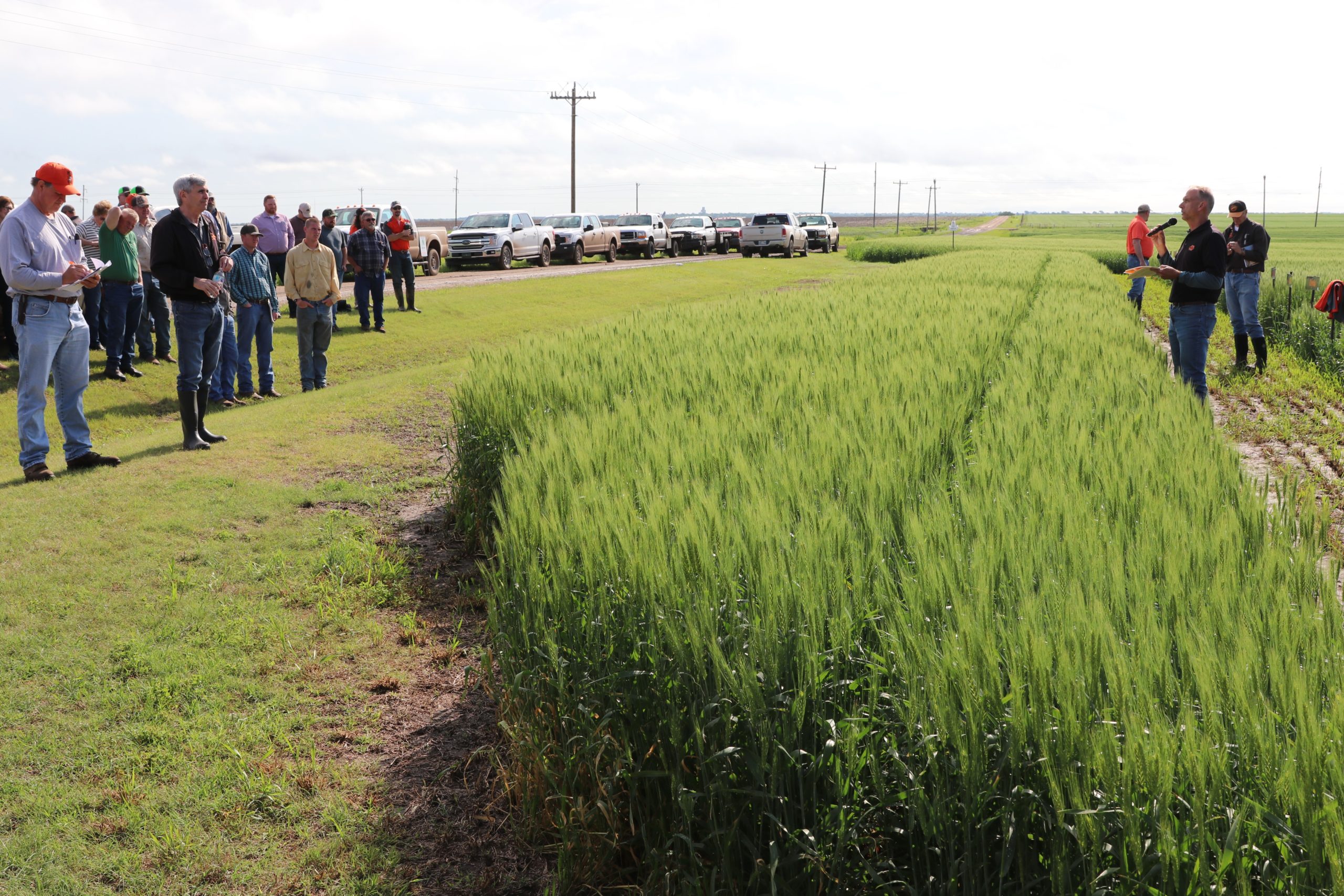Public Wheat Breeding Programs Serving Southern and Central Plains Farmers
Throughout 2021, the U.S. Wheat Associates (USW) Wheat Letter is featuring the many stories of the people, processes and passions that go into producing and delivering high-quality U.S. wheat to the world. Our focus will be on quality that starts with dedicated private and public wheat breeding programs, is fostered by hard-working farm families, is maintained by grain handlers and observed in hundreds of wholesome, nutritious wheat foods.
There is a wide range of U.S. public and commercial breeding programs working to develop wheat classes and varieties adapted to the production constraints in different regions while meeting customer end-use needs. An estimated 65% of all U.S. wheat varieties across six distinct classes were developed by public university breeding programs, funded in part by state wheat commissions, royalties from the sale of public varieties, and the USDA Agricultural Research Service (ARS).
In this post, Wheat Letter offers broad information about public university wheat breeding programs in Texas, Oklahoma, Kansas, Colorado and Nebraska. Future posts will cover breeding programs in other states.
Texas A&M
With support from research grants from the Texas Wheat Producers Board (TWPB), Texas A&M University puts a major focus on projects aimed at enhancing end-use wheat quality to produce a product with more functionality for domestic and overseas customers. For example, TWPB points to the recent development of two new Texas A&M winter wheat varieties that performed well with fewer inputs, decreasing farm financial burdens while showing exceptional milling and baking characteristics.
Dr. Amir Ibrahim is a professor and the project leader of the Texas A&M Small Grains Breeding program. He manages wheat cultivar development for South and Central Texas among other responsibilities. Dr. Jackie Rudd, Texas A&M AgriLife Research wheat breeder in the Texas Panhandle is also working to develop better wheat varieties for breadmaking and farmers alike. An associate research scientist in the AgriLife Cereal Quality Lab and other specialized researchers are part of the Texas A&M wheat team.
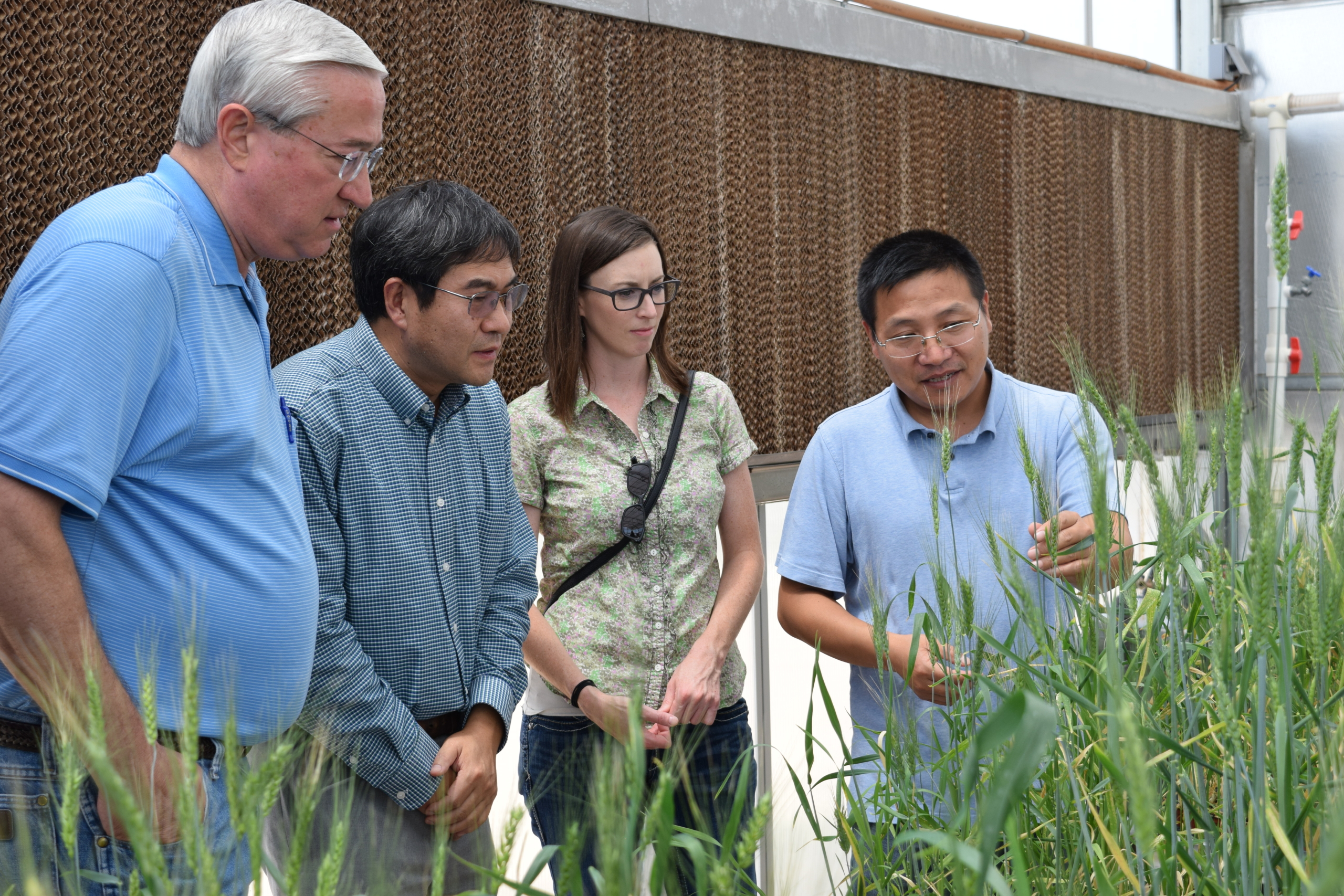
Texas A&M geneticists Dr. Shuyu Liu (second from left) and Dr. Chenggen Chu (right) are using doubled haploid plants to shorten the time to develop genetically pure lines in a traditional winter wheat breeding scheme.
Oklahoma State University
Wheat Improvement research in Oklahoma is driven by an interdisciplinary team of Oklahoma State University (OSU) scientists charged with developing highly adapted winter wheat cultivars with marketable grain quality, in partnership with the Oklahoma Wheat Commission (OWC) and the Oklahoma Wheat Research Foundation. Dr. Brett Carver directs the program as OSU Wheat Genetics Chair.
OWC Executive Director Mike Schulte says the wheat genetics program is committed to excellence in creating varieties to meet the specific needs of Oklahoma wheat producers and the milling and baking industries. OSU varieties are sold to farmers through Oklahoma Genetics, Inc., a non-profit organization directed by Oklahoma farmers.
“OSU wheat varieties, thanks in large part to significant investment by producers through the check-off OWC manages, have led the state in planted area every year since 2010,” said Dr. Carver. “In addition, the top planted varieties from OSU almost always appear on preferred variety lists publicized by the U.S. domestic milling industry over the past five years. The emphasis by the OSU Wheat Improvement Team is, and will continue to be, on a quality yield, not just yield alone.”
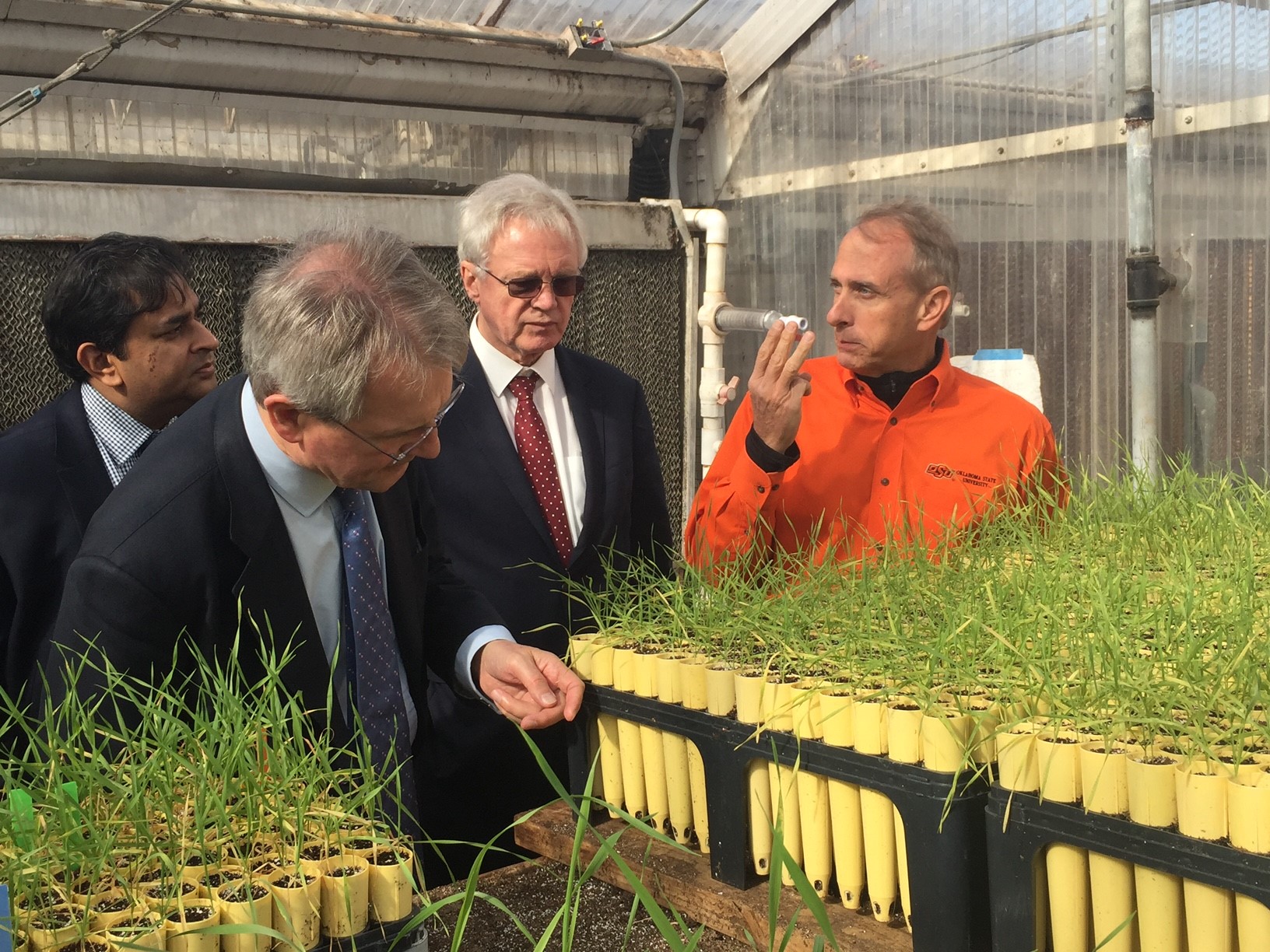
OSU wheat genetics lead Dr. Brett Carver (right) in 2019 discussed cross breeding techniques to select for functional quality in hard red winter wheat with British officials at the OSU research facilities.
Kansas State University
The wheat breeding team at Kansas State University (K-State), led by Dr. Allan Fritz in Manhattan, Kan. and Dr. Guorong Zhang at K-State’s Agricultural Research Center in Hays, Kan., has produced the most widely planted varieties in Kansas in nine of the past 10 years through the Kansas Wheat Alliance.
The world-renowned Wheat Genetics Resource Center (WGRC) has established a national and international network to conduct and coordinate genetic studies in wheat. Located in the Kansas Wheat Innovation Center, the state’s single-largest, farmer investment in wheat research, the WGRC has also been recently designated as a National Science Foundation Industry/University Cooperative Research Center. This is the first I/UCRC focusing on plant sciences. The main K-State breeding team works with the WGRC on genomic mapping and marker-assisted breeding. Other cooperators include the USDA-ARS Hard Wheat Quality Laboratory and wheat programs in the Plant Pathology and Grain Science Departments. Some germplasm lines are also released in conjunction with USDA’s hard winter wheat genetics program.
There is tremendous producer support in the state and region for K-State’s wheat varieties and breeding program. Generous funding for its efforts comes from the Kansas Wheat Commission. Wheat quality is also a priority. Varieties tested for two years and earmarked for release are entered in the Wheat Quality Council (WQC) Milling and Baking Test Program to ensure the varieties meet WQC milling and baking standards. Grain Craft has recently moved its Wheat Quality Lab to the Kansas Wheat Innovation Center, which completes the missing piece in the puzzle in the facility, from variety development through end-use quality testing.
In addition, in 2020, the USDA’s National Institute for Food and Agriculture awarded K-State a $1 million grant to establish the International Wheat Yield Partnership (IWYP) Winter Wheat Breeding Innovation Hub. K-State will lead the effort to evaluate research findings from several IWYP projects that contribute to “significantly improve” wheat yields.
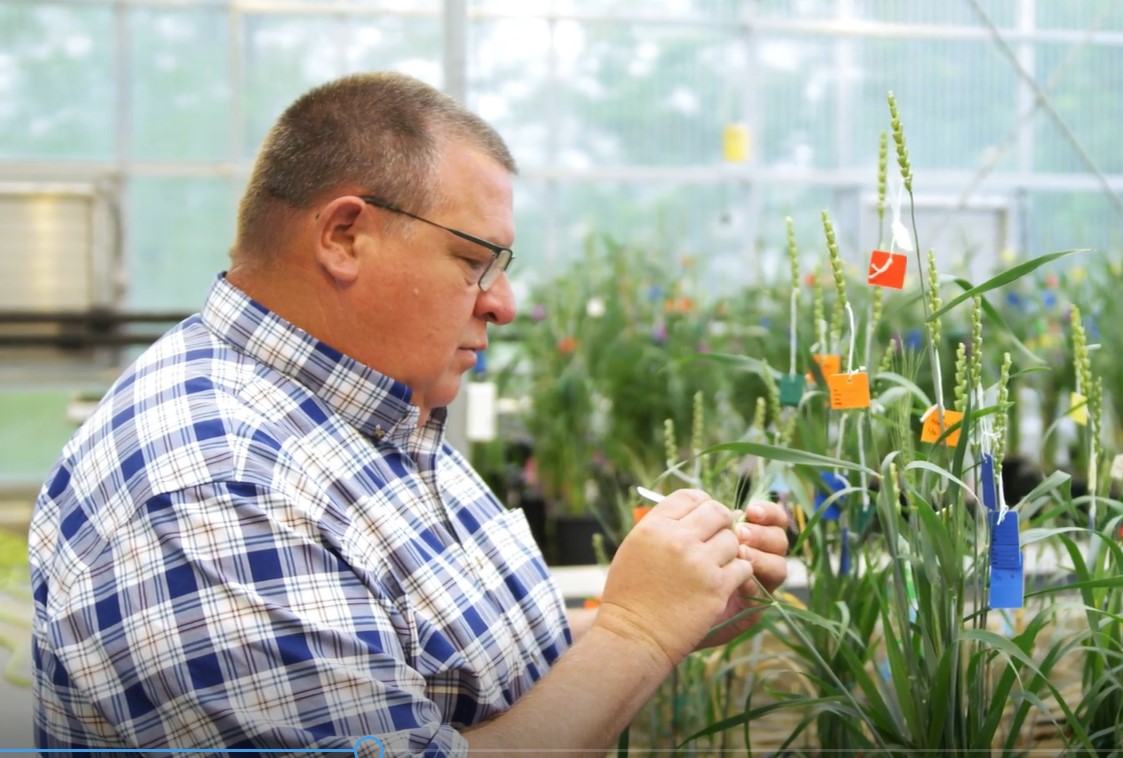
The research team led by Dr. Allan Fritz (above) in Manhattan, Kan., and Dr. Guorong Zhang at K-State’s Agricultural Research Center in Hays, Kan., has produced the most widely planted wheat varieties in Kansas in nine of the past 10 years.
Colorado State University
Thanks to help from Colorado farmers through the Colorado Wheat Administrative Committee, the Colorado State University (CSU) wheat breeding program has built a reputation for success. The goal is to develop varieties that are adapted to Colorado’s unique growing conditions but also have excellent end-use quality to meet milling and baking needs. In 2019, Wheat Quality Lab Manager John Stromberger, now retired Wheat Breeder Dr. Scott Haley, and Extension Agronomist Jerry Johnson, reported on the quality of CSU trial varieties and encouraged producers to carefully consider planting agronomically acceptable varieties with better quality. CSU wheat breeding will continue under the direction of Dr. Esten Mason.
The Colorado Wheat Research Foundation (CWRF) works hand in hand with CSU to help develop and distribute new wheat varieties. As the university develops new varieties, CWRF takes ownership and works with eligible certified seed growers. CWRF collects royalties for certified seed that supply funding for more CSU wheat research. These varieties are sold under the brand name PlainsGoldTM.
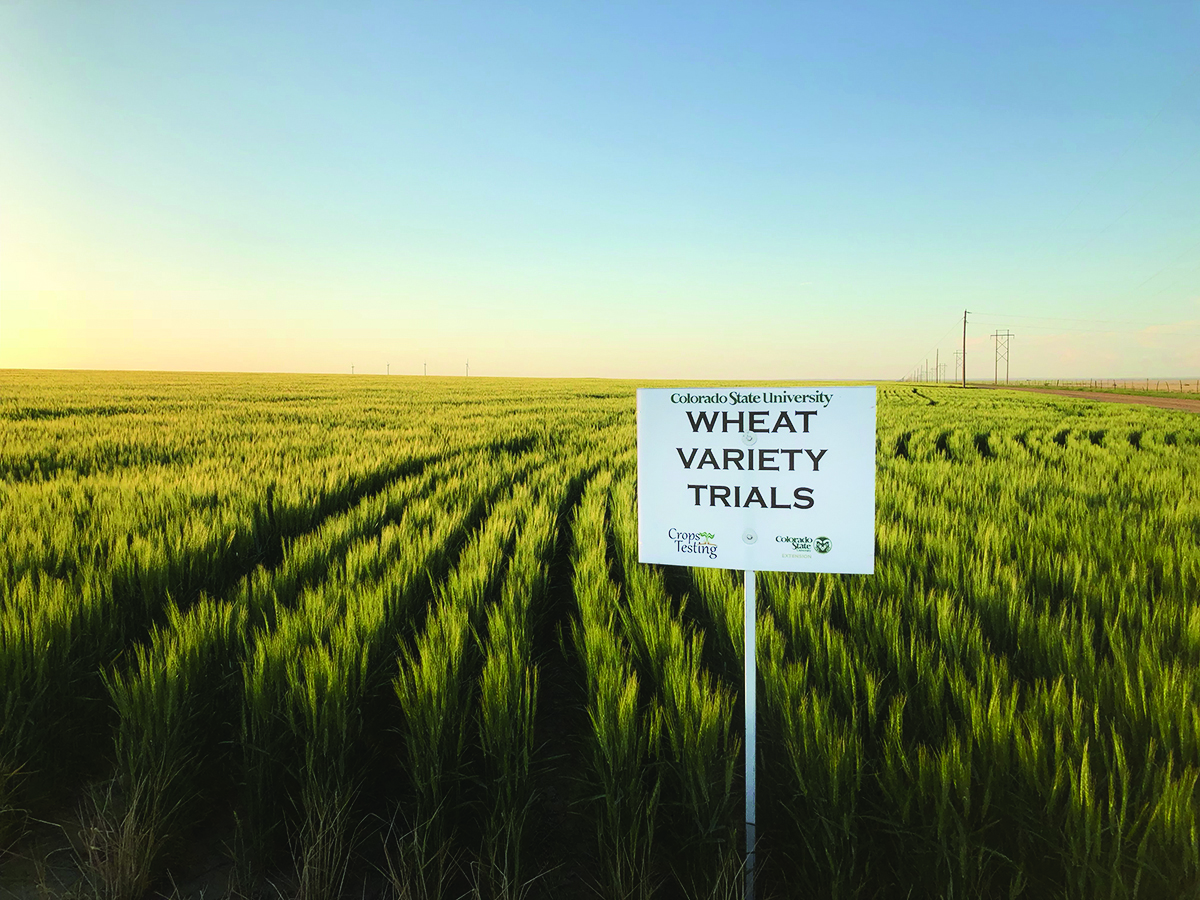
A portion of funding for wheat breeding and research at Colorado State University comes from the sales of public wheat varieties.
University of Nebraska-Lincoln
The Nebraska Wheat Board supports research and breeding programs at the University of Nebraska-Lincoln (UNL) and USDA-ARS efforts to improve agronomic performance for producers, and end-use quality characteristics for millers, bakers and consumers. Dr. Stephen Baenziger heads the UNL small grains breeding program and says the work is highly dependent on a wide range of researchers and public and private support.
For example, Dr. Baenziger has spent several years studying hybridization of wheat in partnership with Dr. Ibrahim of Texas A&M. Ibrahim and Baenziger have tested more than 600 lines of hybrid wheat varieties in Nebraska and Texas. They are now developing the necessary knowledge base, germplasm and enhanced trait pools or patterns from these lines to support the development of hybridized wheat.
The team’s newest project, “Plant breeding partnerships: Continuing to develop and validate the tools for hybrid wheat,” is supported by a $650,000 USDA National Institute of Food and Agriculture grant.
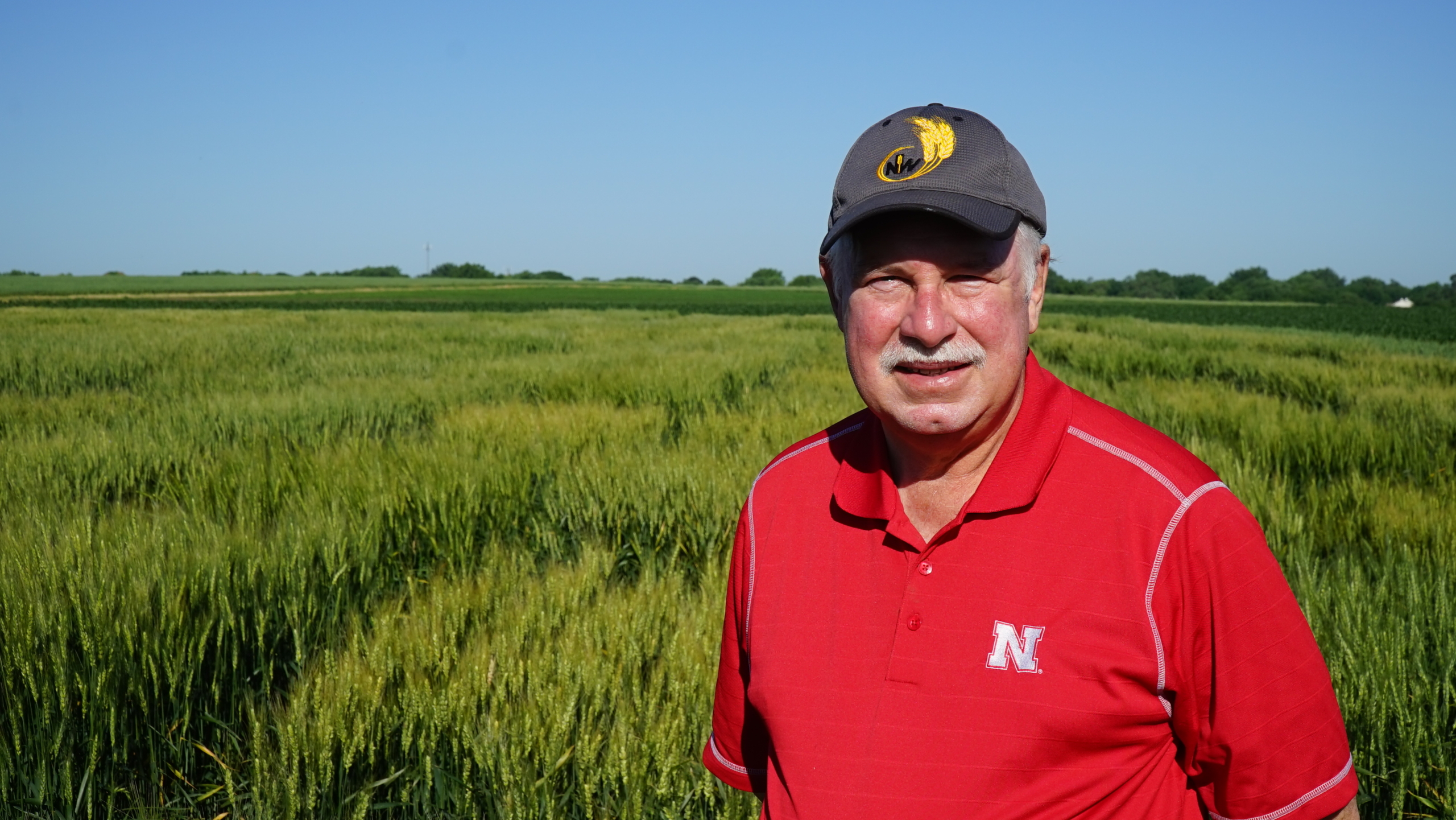
Dr. Stephen Baenziger heads the University of Nebraska – Lincoln small grains breeding program.
Read about other U.S. wheat public breeding programs:
Programs Serving Northern Plains Producers
Programs Serving Soft Red Winter Producers
Programs Serving West Coast Producers
Read about other U.S. wheat commercial breeding programs:

